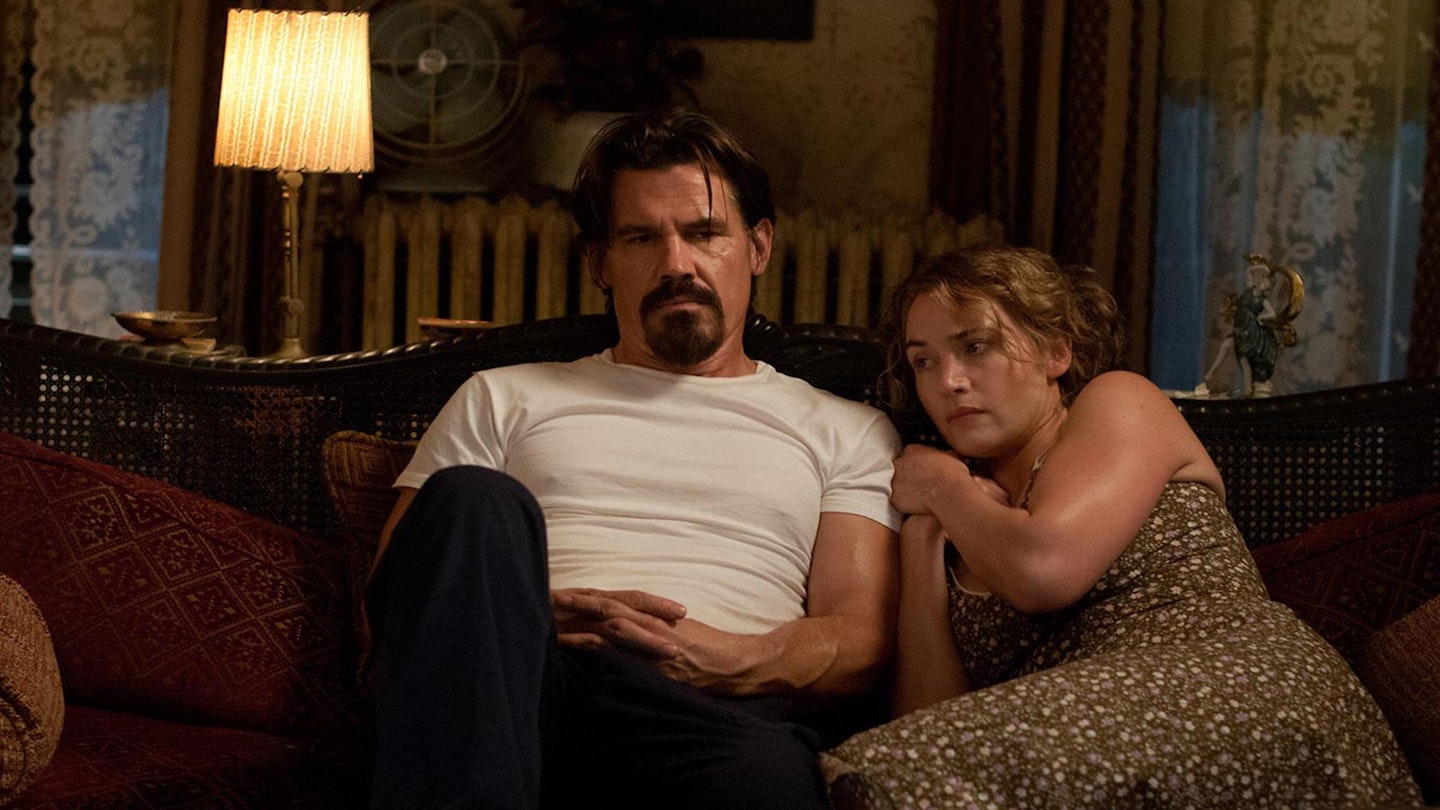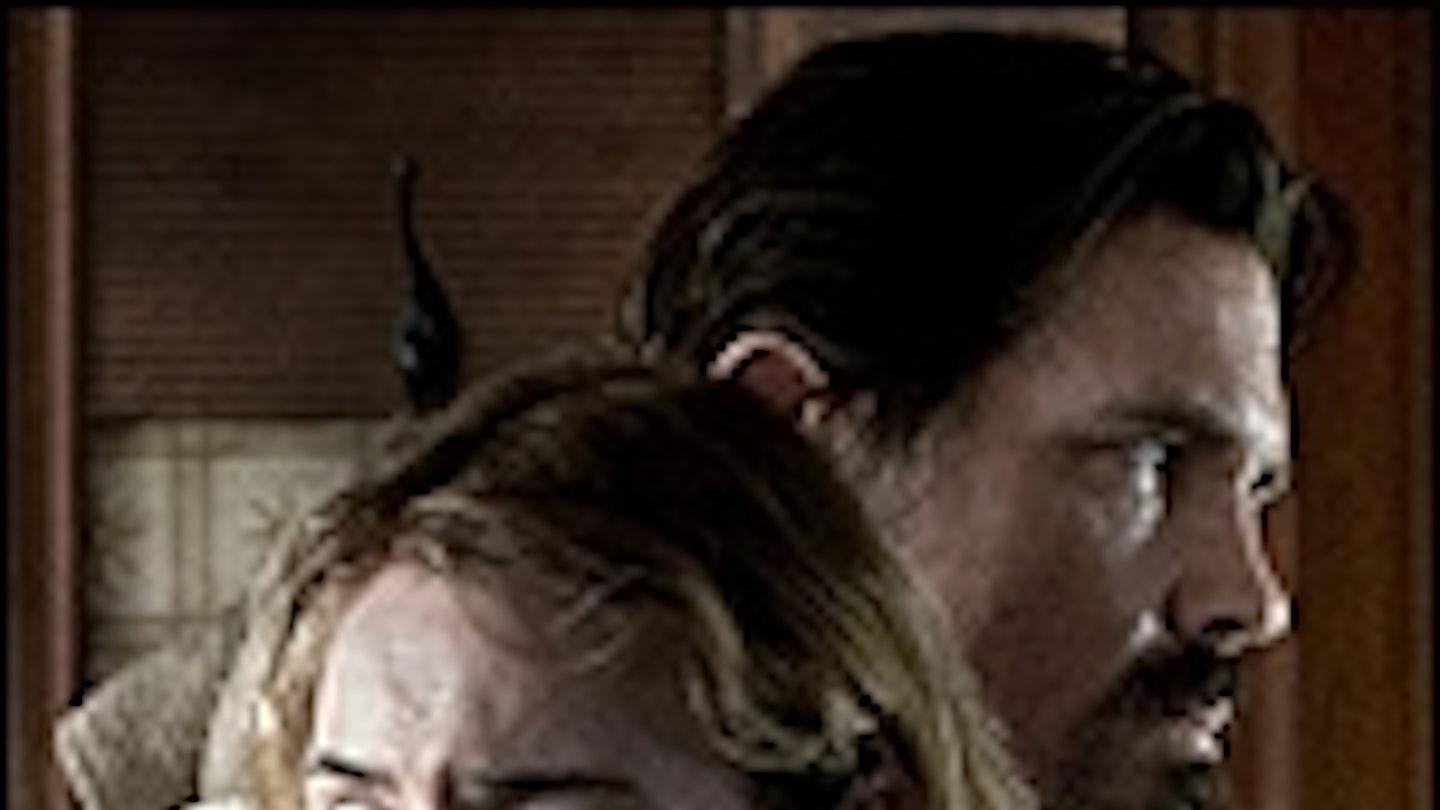Jason Reitman has always specialised in making us like difficult-to-like protagonists: the tobacco-industry lobbyist; the professional downsizer; the wannabe manstealer. (Even Juno had her edge, blithely going through a pregnancy knowing she’d give the kid away.) Though they mostly hit the end-credits unreformed, we always come round to them, or at least find some sympathy.
True to form, in Labor Day we’re presented with the errant Frank, a laconic, brooding, threatening presence who, in the burly, dark-browed form of Josh Brolin, is easily Reitman’s most dangerous character yet. And this brutal, criminal intruder to the sad, hermetic life of mother Adele (Kate Winslet) and son Henry (Gattlin Griffith) becomes a source not of imminent violence but, it seems, of flowering love.
That is where the similarities to Reitman’s earlier work end. For all the dark pull of their undercurrents, Thank You For Smoking, Juno, Up In The Air and Young Adult were essentially comedies: spiky, snarky, snappy and smart-assed. Labor Day may share some chromosomes (the new girl in town who becomes a third-act proto-girlfriend for young Henry could be another Diablo Cody avatar), but it is a far more sombre affair, with melodramatic tendencies. Less dependent on the rhythm and flow of sharp dialogue volleys, more reliant on the energy of action over words. It is a more tactile film than Reitman has ever made before, sensual even, and raw — the thinly clothed characters sheened with high-summer sweat rather than armoured in irony.
Schmaltz hoves close at moments, but never crashes through. The story’s unlikely centre-set-piece sees Frank, an artist with pastry, patiently guiding Adele and Henry through his peach pie recipe. Despite the presence of a 12-year-old, all that kneading and shaping, with Frank and Adele’s arms linked together in a shared act of creation, becomes strongly erotic. It kinda shouldn’t work, but Reitman pulls it off. He sure knows how to cast films, and between them Winslet (desperate, frowzy but never weak or hysterical) and Brolin (a study in restrained passion) provide all the necessary alchemical reactions.
Griffith, meanwhile, proves something of a discovery: the awkward, sad-eyed heart of the film, whose central coming-of-age thread — located in that Amblin heyday (Close Encounters cameos) — gives the film a warm, welcome Spielbergian spin. At times it feels more like the non-alien-monster bits of J. J. Abrams’ Super 8 than it does any another Reitman movie.
Some of it doesn’t work so well. A coda with a cameo pushes things a tad too saccharine (Simon Birch springs to mind), and the story too occasionally clings to overt contrivances. But Labor Day’s strengths outweigh its weaknesses, and in fact its flaws become part of its appeal. Somehow it is both Reitman’s most mature movie to date, the first step out of his career’s wiseacre adolescence, but also his most innocent and naive — the result, in part, of its admirable adherence to a child’s-eye view of the tense, difficult, dangerous and powerful relationship that blossoms convincingly between Frank and Adele.




